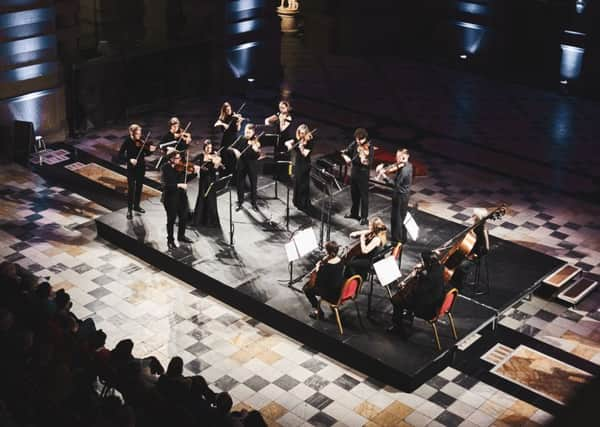Music review: Scottish Ensemble, Baroque: Take Two, Signet Library & St Giles Cathedral, Edinburgh


Scottish Ensemble, Baroque: Take Two, Signet Library & St Giles Cathedral, Edinburgh ****
And the answer, for this listener at least, was: well, not that much. The acoustics changed entirely, of course – put to great effect in the rich, expansive chords of concerti grossi by Corelli and Locatelli in St Giles, whose cavernous setting also added considerably to Morton’s impassioned, improvisatory performance of ‘The Agony in the Garden’ from Biber’s Rosary Sonatas.
Advertisement
Hide AdAdvertisement
Hide AdMost striking, however, was the remarkable sense of controlled flamboyance from the Ensemble across both venues, under guest director Jonathan Cohen, who supplied some wonderfully florid contributions from the harpsichord, driving things on with abundant enthusiasm. This was high-energy playing, fresh and volatile, and occasionally a little overwhelming up close in the Signet Library (okay, maybe there was something to the two-venue concept after all). There, the stand-out piece was Locatelli’s Concerto grosso ‘Il pianto d’Arianna’, virtually an opera scene with Morton’s solo violin as the hair-tearing protagonist, high on emotion but also on vivid musical storytelling.
Playing across a pair of venues had its issues as a concept, but under Cohen’s supple direction, the Scottish Ensemble was nevertheless on exceptional form.
DAVID KETTLE